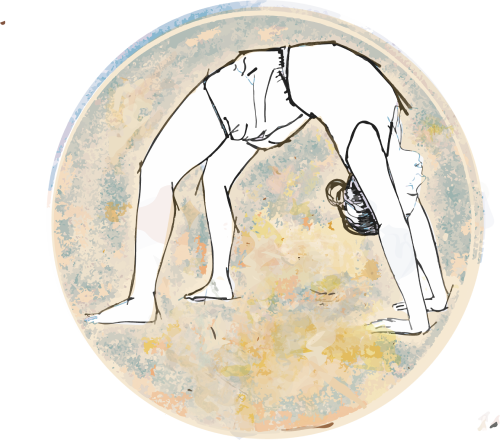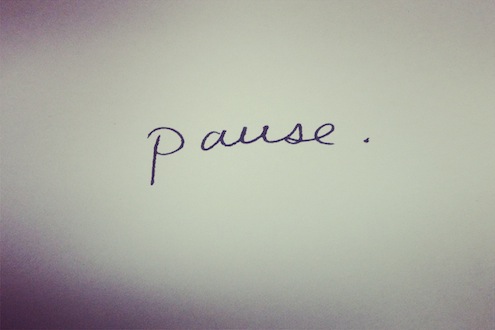[vc_row][vc_column][vc_column_text text_larger=”no”]
Initially published November 2018.
Edited March 2021
I reserve the right to continue editing this post as I wade through my personal journey of questioning and learning. The timeline of events at the end of this post will remain un-edited.
———————————-
We have been through an extraordinary year where humankind was brought to its knees through the workings of a simple rna-protein complex popularly called the coronavirus. Human will, strategies and actions can seem puny when faced with the forces of Nature. As instructors of yoga, we have spent a whole year trying to communicate with people in an online format. Many of our pre-conceived beliefs about how this subject ought to be communicated have had to be swiftly abandoned in the face of radical behavioural restrictions that gave no time to negotiate, and to adapt. This seems particularly ironic given that just three years ago, we faced a storm trying to justify that the teacher-student relationship can only exist within the boundaries of traditional teaching system, in the real world.
At the height of the #metoo movement in India, our small, neighbourhood yoga studio found itself at the center of accusations. The events and its aftermath have been the most traumatic experience of my five decades of existence. They say what doesn’t kill you, makes you stronger. It will be a long time before I will know if I emerged ‘stronger and wiser’, or just ‘better-adapted’. For now, I am grateful that we, and the practice room, have survived. For months after afterwards, we were numb with sadness – about relationships and friendships that were lost, trust that was broken; we were numb with fear – that our actions and words would come out all wrong, and would be misunderstood. Later, we stayed silent to maintain the sanctity of the Internal Committee’s investigation process. So even as the facts of the case morphed into something grotesque and unrecognisable through a stream of chinese whispers, we did not speak openly.
It has now been three years. I can attempt to look back at the perfect storm that we found ourselves in, without being emotionally overwhelmed. It is time to edit the original post (which was just a timeline of events, that will continue to exist as part of the post) and fill in some details. I will not disclose any names that are not already in the public domain. I will try not to ascribe motives to people’s actions – though I might sometimes explain my own. Whatever I present as fact will be backed by proof in the form of written and signed accounts, emails, witnesses. I am not sure what the final form of this post will be. I am not a story-teller, and the narrative will be choppy. But I am hoping that it will help us, and help the reader, maybe even help some of the people involved in the case, understand what really happened. The incidents three years ago brought only sorrow and misery for everyone involved – for those who made the accusations, and for everyone else who was forced to take sides with incomplete information. We regret from the bottom of our hearts that we were the cause of upheaval in the lives of so many people. We categorically reject that what happened was wilful sexual harassment.
Facing the embarrassment of friends and acquaintances in discussing this case has been only marginally less oppressive than living under a cloud of misdirected accusations. Yes, we want to talk about our #metoo story openly, own up to mistakes we made – we regret them, but we are not ashamed of them. If you have questions, even uncomfortable ones, write in to us.
————————————————————
Fact 1:
Of the eight complaints submitted to the Internal Committee, four were rejected as having nothing to do with ‘sexual harassment.’ The nature of these rejected complaints is quite interesting as it gives a good idea of the situation in which all the complaints emerged. Coming up next…
————————————————————-
A timeline of events since the time that some of our ex-students alleged that they had felt inappropriately adjusted by one of our instructors, and that they were not satisfied with our initial responses to their complaints. Our Internal Complaints Committee (ICC) – comprising of internal and external members, conducted the investigation. All complainants were spoken with in-person, and the respondent stepped down from teaching all general classes at the practice room for the duration of the ICC’s investigation.
21st July, 2018
The testimonials from a few ex-students were presented to us.
22nd July, 2018
Announcements were made in class about the respondent stepping down from teaching general classes for an indefinite period – to give us time to understand the situation, to respond appropriately, and to create a non-threatening environment, should anyone else wish to come forward with questions and concerns.
We actively started the process of consultations with lawyers, counselors, and social organisations.
27th July, 2018
We had the first consultation with Enfold. The facts of the case – the extent of allegations, the incidents inside and outside of the practice room, the timeline of events, the individuals involved, our initial responses, all were discussed in detail with Dr. Shaibya Saldanha.
4th August, 2018
In an open event, the respondent and I made public statements regretting our role in causing inadvertent hurt to students, and affirming our intent to create institutional mechanisms to prevent a recurrence of such situations in the future.
August, 2018
The law on sexual harassment of women at workplace (the POSH Act*) was studied in detail, and work was started on drafting an Internal Process Guideline in consultation with Enfold, other lawyers, as well as inputs from students who have had experience in dealing with issues related to sexual harassment in workplace, and volunteered to participate in this process.
Week of 10th September, 2018
Announcement was made in all classes about:
– adoption of the ‘Process Guideline’ on dealing with complaints of sexual harassment, and putting out a copy of the above to be kept at the practice room at all times.
– the setting up of the Internal Committee (ICC)*. The ICC has a fair representation from our various batches. Most of the student-members have experience in handling issues related to sexual harassment in various institutions.
————-
*In 2013, India’s first legislation specifically addressing the issue of workplace sexual harassment was enacted: the Sexual Harassment of Women at Workplace (Prevention, Prohibition and Redressal) Act, (“POSH Act”).
An important feature of the POSH Act is that it envisages the setting up of a grievance redressal forum: the Internal Committee. The POSH Act requires an employer to set up an ‘internal committee’ (“IC”) at each office or branch, of an organization employing 10 or more employees, to hear and redress grievances pertaining to sexual harassment. The POSH Act details guidelines on the constitution of the IC, the enquiry/ redressal process, punishment and compensation, and stresses on the need to maintain confidentiality. The POSH Act stipulates that the IC shall, while inquiring into a complaint of workplace sexual harassment, have the same powers as vested in a civil court under the Code of Civil Procedure, 1908 when trying a suit in respect of: i. summoning and enforcing the attendance of any person and examining him on oath; ii. requiring the discovery and production of documents; and iii. any other matter which may be prescribed.
In addition to requiring an employer to set up an IC and ensure redressal of grievances of workplace harassment in a time bound manner, the POSH Act casts certain other obligations upon an employer which includes: a. Promoting a gender sensitive workplace and removing the underlying factors that contribute towards creating a hostile working environment against women; b. provide a safe working environment; c. formulating and disseminating an internal policy or charter or resolution or declaration for prohibition, prevention and redressal of sexual harassment at the workplace; d. displaying conspicuously at the workplace, the names and contact details of all members of the IC; f. organising workshops and awareness programmes at regular intervals for sensitizing employees on the issues and implications of workplace sexual harassment and organizing orientation programmes for members of the IC.
————-
14th September, 2018
ICC members were briefed by Dr. Saldanha. Subsequently two more student-members (including a back-up member) were added to the ICC based on the recommendation of external advisors.
17th September, 2018
ICC posters were put up with the contact details of all members.
17th – 21st September, 2018
The respondent went through a 5 day training program conducted by Enfold.
the program details can be found here
This (or a similar) training program is now mandatory for all instructors at the practice room.
20th September and 21st September, 2018
Interactive sensitisation sessions were organised for all students on: “Touch and Personal Safety”, the functioning of the ICC, and answering questions that were raised by students. These sessions conducted by Enfold will continue periodically at the practice room.
4 October, 2018
Having implemented all the steps that were advised by our external advisor, the respondent returned to teaching general classes at the practice room (after staying away for 2.5 months).
19th October, 2018
Query was received by the ICC from one of the original complainants about the respondent’s return to teaching.
Subsequently, this query was registered as a complaint and the ICC decided to formally investigate all allegations. The respondent stepped down from teaching general classes at the practice room once again, and I stepped down from the ICC for the duration of the investigation.
The complainants raised an objection to one of the ICC members, and a back-up member was selected.
4th November, 2019
Graphic details of the complaints, and testimonials of complainants, emerged on the social media, and on print media
30 January, 2019
The ICC submitted its reports. The report ruled out intent to cause harassment on the part of the respondent, but stated that the complainants had been aggrieved. The report also made recommendations to prevent recurrence of such situations. The recommendations fall into two broad categories:
– Informing, giving choice, and giving confidence to students, so that situations of unease can freely surface, and be dealt with
– Informing, training and equipping instructors, so that even unintentionally, they do not breach personal boundaries of students.
The investigation is now closed.[/vc_column_text][/vc_column][/vc_row]





